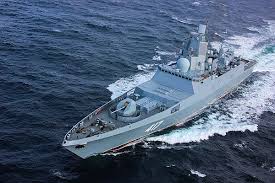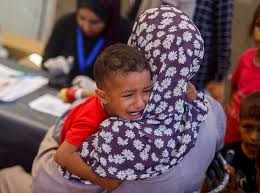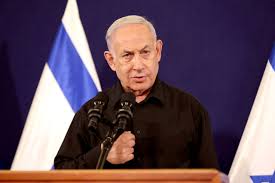DUSHANBE (Agencies): Following the summit, the heads of state of the Shanghai Cooperation Organization signed the Dushanbe Declaration on the 20th anniversary of the SCO and another 30 documents, including on the beginning of the procedure for Iran’s joining the organization, the RIA Novosti correspondent reports.
“I ask you to begin the ceremony of signing the Dushanbe Declaration and other summit documents,” said Tajik President Emomali Rahmon , after which the SCO leaders proceeded to this.
The countries of the Shanghai Cooperation Organization (SCO) consider it important to create an inclusive government in Afghanistan with the participation of representatives of all ethnic, religious and political groups, according to the declaration adopted at the end of the SCO summit .
“The member states consider it extremely important to create an inclusive government in Afghanistan with the participation of representatives of all ethnic, religious and political groups of Afghan society,” the document emphasizes.
“The member states believe that one of the most important factors in maintaining and strengthening security and stability in the SCO space is the earliest possible settlement of the situation in Afghanistan. They advocate the formation of Afghanistan as an independent, neutral, united, democratic and peaceful state, free from terrorism and war. and drugs,” the document says.
A package of 30 documents was submitted for signing – the Dushanbe Declaration of the 20th Anniversary of the SCO, on the approval of the program of cooperation in countering terrorism, separatism and extremism for 2022-2024, on the approval of the work plan for the implementation of the points of the program on the implementation of the anti-drug strategy for 2018-2023 , on the approval of plans for interaction on information security issues for 2022-2023 and others, including the start of the procedure for admitting Iran to the SCO membership and granting the status of a SCO dialogue partner to Qatar , Egypt and Saudi Arabia .
After the end of the summit, the anthem of the Shanghai Cooperation Organization was played for the first time.
The SCO countries adopted a joint declaration:
The SCO is in favor of building a new Afghan government that includes representatives of all ethnic, religious and political groups in Afghan society.
The countries of the organization believe that one of the most important factors in maintaining and strengthening security and stability in the SCO space is the earliest possible settlement of the situation in Afghanistan.
The participants in the meeting proceed from the fact that there is no alternative to the political and diplomatic settlement of conflict situations in various regions of the world on the basis of strict adherence to generally recognized norms and principles of international law.
They advocate the formation of Afghanistan as an independent, neutral, united, democratic and peaceful state, free from terrorism, war and drugs.
The SCO emphasizes the importance of the long-term hospitality and effective assistance to the Afghan refugees provided by the regional and neighboring countries of Afghanistan, and considers it important the active efforts of the international community to facilitate their dignified, safe and sustainable return to their homeland.
The SCO priorities in ensuring regional security and stability will remain countering terrorism in all its forms and manifestations, separatism, extremism, illegal drug trafficking, weapons, ammunition and explosives, transborder organized crime, ensuring international information security, strengthening border security, and jointly combating illegal migration and human trafficking, money laundering, economic crimes, corruption.
In this context, the SCO member states have established effective cooperation, and the corresponding mechanisms of interaction between them are functioning. They advocate further practical implementation of the documents adopted in this area and consider it important to take measures to further improve the SCO regulatory framework in the field of security.
In order to improve the mechanisms for countering security challenges and threats, the SCO member states are considering the following initiatives: on the creation of the SCO Anti-Drug Center in the city of Dushanbe as a separate permanent body (Republic of Tajikistan), on the establishment of the SCO on the basis of the Regional Anti-Terrorist Structure (RATS) in the city of Tashkent The Universal Center for Countering Security Challenges and Threats of the SCO Member States (Russian Federation), on the establishment of the SCO Information Security Center (Republic of Kazakhstan), on the establishment of the Center for Countering International Organized Crime in the city of Bishkek (Kyrgyz Republic).
The member states note that cooperation in countering security challenges and threats should be carried out consistently, without the use of double standards, through strict observance of the norms of international law.
The member states emphasize the importance of supporting multilateralism and finding ways to ensure security, and advocate responding to global and regional challenges with political and diplomatic measures. They advocate increased interaction in order to actively advance the process of disarmament, arms control and the non-proliferation of weapons of mass destruction, including efforts within the framework of the Conference on Disarmament.
The member states consider it important to sustainably implement the Joint Comprehensive Plan of Action on the Iranian nuclear program and, in accordance with UNSCR 2231, call on all participants to unswervingly fulfill all their obligations for the full and effective implementation of the document.
The member states that are parties to the Treaty on the Non-Proliferation of Nuclear Weapons stand for the strict observance of the provisions of the Treaty, the comprehensive balanced promotion of all the goals and principles set forth in it, the strengthening of the global nuclear non-proliferation regime, the continuation of the nuclear disarmament process, as well as the promotion of equitable mutually beneficial cooperation in the field of the use of atomic energy for peaceful purposes.
The member states believe that the early entry into force of the Protocol on Security Assurances to the Treaty on a Nuclear Weapon Free Zone in Central Asia for all signatory states will make a significant contribution to ensuring regional security and strengthening the nuclear nonproliferation regime.
The member states emphasize the importance of the Convention on the Prohibition of the Development, Production and Stockpiling of Bacteriological (Biological) and Toxin Weapons and on Their Destruction (BTWC) as one of the pillars of the global security architecture. They emphasize the need for strict adherence to the BTWC, including through the adoption of a Protocol to the Convention, which provides for an effective verification mechanism. They oppose the creation of any mechanisms duplicating the functions of the BTWC, including in the part concerning the competence of the UN Security Council.
Member States call for full compliance with the Convention on the Prohibition of the Development, Production, Stockpiling and Use of Chemical Weapons and on Their Destruction (CWC) as an effective instrument in the field of disarmament and non-proliferation. They stress the importance of the early destruction of all declared stockpiles of chemical weapons. Member States reaffirm their support for the Organization for the Prohibition of Chemical Weapons (OPCW) and advocate for concerted decisions to bridge divisions within the Organization, ensure its integrity and operate effectively in accordance with the Convention.
The member states support the preservation of outer space free of weapons of any kind and state the importance of strict observance of the current legal regime, which provides for the exclusively peaceful use of outer space. They emphasize the need to conclude an international legally binding instrument that would enhance transparency and provide reliable guarantees to prevent an arms race and not be the first to deploy weapons in outer space.
Member States strongly condemn terrorism in all its forms and manifestations. They emphasize the key role of member states and their competent authorities in countering terrorism, separatism and extremism.
The member states reaffirm the need to intensify common efforts to prevent terrorism and its financing, including in the context of the implementation of existing world standards in the field of combating money laundering and financing of terrorism, as well as suppressing the spread of terrorist, separatist and extremist ideology that feeds it. We consider it important that the SCO member states participate in the Code of Conduct to achieve a world free of terrorism.
The member states note the inadmissibility of interference in the internal affairs of states under the pretext of countering terrorism and extremism, as well as the inadmissibility of using terrorist, extremist and radical groups for selfish purposes.
The member states reaffirm the special role of the SCO Regional Anti-Terrorist Structure in the joint fight against terrorism, separatism and extremism in order to ensure regional security and will build up the potential for cooperation of competent authorities in these areas. Priority attention will be paid to the implementation of the Program of Cooperation of the SCO Member States in Countering Terrorism, Separatism and Extremism for 2022-2024.
The member states are convinced that an important direction in the global anti-terrorist struggle should be the deprivation of terrorism from its social support, including the elimination of poverty, unemployment, and illiteracy. They will step up their own efforts to prevent the preparation and financing of acts of terrorism in their territories and deny terrorists a safe haven, deepen interaction to identify, prevent, suppress the activities of organizations and individuals involved in terrorism, separatism and extremism.
The member states consider it important to take a responsible approach to the rehabilitation of their citizens who have returned from the zones of terrorist activity, in accordance with UN Security Council Resolution 2396 and the national legislation of each SCO member state.
The member states will step up efforts to counter the spread of extremist and separatist ideas, primarily among young people, and work to prevent religious intolerance, aggressive nationalism, ethnic and racial discrimination, xenophobia, ideas of fascism and chauvinism. The consistent implementation of the Action Program for the implementation of the provisions of the Joint Appeal of the Heads of the SCO Member States to Youth will continue.
The member states emphasize the need to intensify common efforts to prevent and suppress the spread of terrorist, separatist and extremist ideologies. They are convinced that the promotion of extremist, separatist and terrorist ideas, any information support, propaganda and justification of terrorism create conditions for the spread of radical sentiments and the recruitment of supporters into the ranks of terrorist organizations.
The member states will continue to conduct joint anti-terrorist exercises of the competent authorities of the SCO member states, including the upcoming Pabby-Anti-Terror-2021 exercise. Particular attention will be paid to cooperation in identifying and suppressing the use of the Internet for terrorist, separatist and extremist purposes, strengthening the relevant potential of the competent authorities of the SCO member states, including training.
In order to counter the threat of chemical and biological terrorism, the Member States emphasize the need to launch multilateral negotiations at the Conference on Disarmament on an international convention on the suppression of acts of chemical and biological terrorism.
Member States will continue to effectively cooperate on border issues, including joint border operations, as well as the exchange of information on individuals involved in terrorist activities, and the joint investigation of terrorist crimes of a transnational nature through effective border controls in order to prevent foreign activities and movement across the border. terrorists and terrorist groups.
The member states of the Shanghai Cooperation Organization will continue consultations on the establishment of the Developm-ent Bank and the Devel-opment Fund (Special Account) of the SCO.
They also highlighted the primary task of collaboration. It is “the development of interaction in the trade and economic field, the creation of favorable conditions for trade and investment on the principles of equality, fair competition, mutual respect and mutual benefit.”
In order to provide financial support for the implementation of joint projects, the states will continue to interact within the framework of multilateral banking and financial structures operating in the region, they also explained.
Members of the organization will also continue to unleash the potential of the Business Council and the SCO Interbank Consorti-um, as well as develop joint initiatives of the business community to strengthen cooperation for the implementation of projects in the field of finance, high technologies, transport and communications infrastructure, energy, agriculture and investment projects.
At the same time, the participation of the SCO Business Council and the SCO Interbank Association in the development of effective mechanisms to support interregional economic cooperation and private entrepreneurial initiative is considered important. It is also considered necessary to determine the order of actions of interstate and national development institutions for the implementation of projects that are of priority importance for all countries of the association and jointly financed by the banking structures of the SCO member states in emergency situations and a pandemic.
The SCO supports Chi-na’s Belt and Road Initia-tive and its linking with the Eurasian Economic Union.
In addition, the member countries of the association advocate broad international cooperation in solving the problems of resource provision of the needs of mankind without harming the environment and public health, in achieving sustainable and high-quality economic growth based on providing all states with equal and fair access to the benefits of economic globalization.
They consider it important to use the potentials of the countries of the region, international organizations and multilateral associations in the interests of forming a space in Eurasia of wide, open, mutually beneficial and equal interaction in accordance with the norms of international law and taking into account national interests. In this regard, the SCO noted the idea of ??creating a Greater Eurasian Partnership with the participation of the SCO countries, the Euras-ian Economic Union, the Association of Southeast Asian Nations, as well as other interested states and multilateral associations.
The member states emphasize the importance of exchanging experience on the development and implementation of national development strategies, plans for the digital economy and the introduction of innovative technologies, including in order to jointly bridge the technological and digital divide between them.






